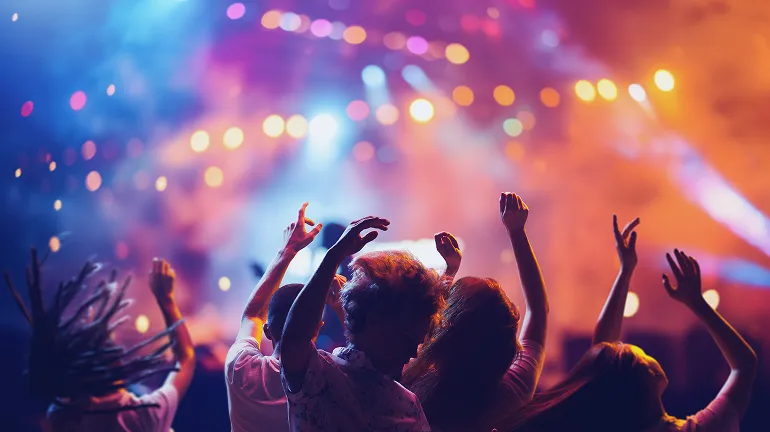Commercial Partnerships & Digital Media
The modern music industry extends far beyond records and live shows. Artists increasingly rely on partnerships with brands, merchandising opportunities, synchronisation deals, and digital platforms to grow their careers and generate income. These arrangements can be highly rewarding, but without careful agreements, they can also dilute your rights or undervalue your contribution. At musiclegal.co.uk, we connect you with experienced professionals who understand how to protect your interests while unlocking the potential of commercial partnerships and digital media.
Commercial Partnerships & Digital Media
Commercial partnerships in music come in many forms. Sponsorship deals, brand endorsements, merchandise collaborations, and synchronisation licences all provide opportunities to expand your profile and generate new revenue. Each of these partnerships involves the use of intellectual property, image rights, and contractual obligations that must be clearly set out to avoid disputes and ensure that you receive fair value.
Endorsement agreements, for example, often involve commitments to appear in marketing campaigns, use products publicly, or promote brands on social media. Without a clear contract, artists may find themselves tied to obligations that interfere with their creative work or limit future partnerships. Proper agreements should specify the duration of the endorsement, the scope of services required, the fees or benefits payable, and the categories of exclusivity.
Merchandising is another major area of opportunity. From T shirts to vinyl box sets, merchandise allows fans to support artists directly. However, merchandise agreements need to cover design approvals, quality control, royalty rates, and sell off rights at the end of the contract. Without these provisions, artists risk losing control of their image or being underpaid for sales of their products.
Digital media has transformed the music business. Platforms such as YouTube, TikTok, Instagram, and Spotify provide enormous exposure but also raise questions about ownership, royalties, and usage rights. Collaborations with influencers, online sponsorships, and digital partnerships can boost visibility, but they require clear agreements to define how content is created, who owns it, and how revenue is shared.
Synchronisation deals are a particularly important aspect of commercial partnerships. Allowing a song to be used in film, television, advertising, or video games can bring both significant income and new audiences. However, sync licences must carefully set out the territory, duration, type of usage, and fees payable. Artists should also consider the context in which their music is used, as placements in political or controversial material may affect reputation.
Emerging technologies are creating new opportunities but also new challenges. Artificial intelligence is increasingly being used in music creation, sampling, and brand partnerships. Artists need to ensure that their rights are protected in these contexts, particularly around ownership and licensing. Likewise, NFTs and blockchain based projects are creating new models for fan engagement and revenue that require careful legal structures.
Our network helps artists and businesses navigate these complex areas by ensuring that every commercial and digital partnership is underpinned by clear, fair agreements. This provides confidence for both parties, supports creative growth, and maximises income potential. A well structured deal can create lasting opportunities while protecting your brand, reputation, and rights.
Atmusiclegal.co.uk, we believe that commercial partnerships and digital media should be empowering, not risky. With the right agreements in place, artists can embrace innovation and opportunity without sacrificing control or value.
"An artist’s brand is as important as the music. Protect it, or someone else will own it."
– Dr Dre
.svg)
Partnerships and digital opportunities are powerful tools to grow your career, but only if they are structured correctly. To explore how our network can support you in building secure and rewarding partnerships, please complete the form at the bottom of this page.
FAQs
What is the difference between an endorsement and a sponsorship?
An endorsement usually involves an artist promoting a product or service, often by using it publicly. A sponsorship is broader, involving financial or material support from a brand in return for visibility or association.
Do I need a contract for merchandise sales?
Yes. Merchandise agreements should cover royalty rates, design approvals, quality control, and what happens to unsold stock at the end of the arrangement.
What should I look out for in a sync deal?
Key considerations include the territory, the duration, the type of media in which your music will appear, and the context of usage. Fees and approval rights are also critical.
Who owns content created for social media collaborations?
Ownership should be clearly set out in the agreement. In many cases, artists retain rights to their performances while granting limited usage rights to brands or collaborators.
How can I protect my rights with new technologies such as AI or NFTs?
By ensuring that contracts clearly define ownership, licensing, and revenue sharing. Emerging technologies are evolving rapidly, so clarity at the outset is essential.

.webp)
.svg)
.svg)

.webp)